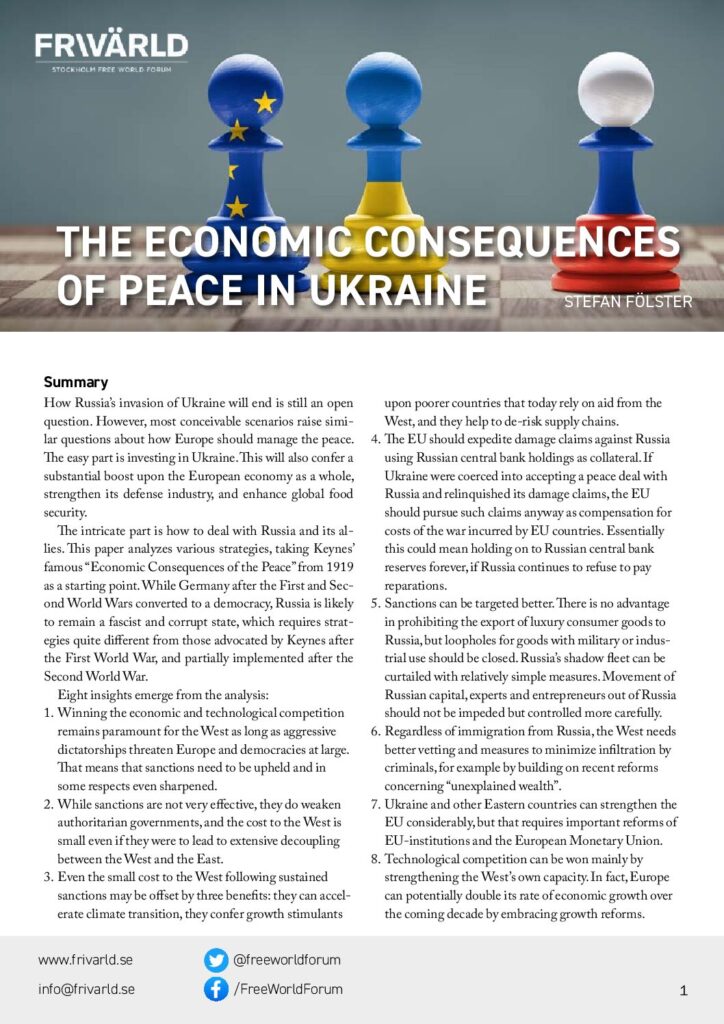Irrespective of the outcome of the war in Ukraine, Europe faces the challenge of managing the post-war period. History has shown that Europe must carefully navigate its strategies for peace settlements to mitigate the risk of destabilization. This issue — how Europe should navigate peace following Russia’s full-scale invasion of Ukraine — is addressed by Stefan Fölster, senior fellow Stockholm Free World Forum, in his new report, The Economic Consequences of Peace in Ukraine.
While rebuilding and investing in Ukraine after the war will offer clear economic and security benefits for Europe, the more complex challenge lies in how Europe should engage with Russia, which is likely to remain a fascist and corrupt state post-war. To address this challenge, the report draws on Keynes’ famous “The Economic Consequences of the Peace” from 1919, adapting his strategies to modern Russian-European relations.
The report arrives at eight key insights, including that Europe should uphold its sanctions post-war as these both weaken authoritarian regimes and offer additional benefits like accelerating the climate transition and de-risking supply chains. Furthermore, the report highlights the importance of EU institutional reforms to integrate Eastern countries like Ukraine and enhance technological capabilities to increase Europe’s economic growth potential.
Stefan Fölster är senior fellow vid Frivärld, docent i nationalekonomi och leder tankesmedjan Better Future Economics. Han har tidigare varit adj. professor i nationalekonomi vid KTH, chefekonom vid Svenskt Näringsliv och VD för Handelns Utredningsinstitut.
